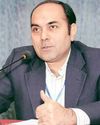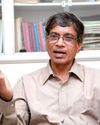試す 金 - 無料
Spectrum Auction: Winners And Losers
GovernanceNow
|October 16 2016
Now that the big bang event is over, where does the consumer stand in the new scenario?

The biggest ever telecom spectrum auction is over, and again it’s time to take stock. The government, of course, has failed miserably to meet its targets – due to a variety of reasons. The industry, already amid a price war thanks to the entry of Reliance Jio, has not been able to shell out much for the new bands on offer. The consumer, however, looks forward to better services and some relief from existing problems like call drops. Will that hope materialise soon?
Rajan Mathews, director general, Cellular Operations Association of India (COAI), believes that the issues concerning network including call drops will be solved now, but it will take time. "Once the spectrum is allocated, we have to put it into operation, part of which means that you have to build cell towers. So we have to wait for six nine months to see the complete impact of this,” he says.
He feels that now the operators have adequate amount of spectrum. Telecom experts, however, say that lack of spectrum was not the primary issue behind call drops.
"In places like Delhi, a high-density mobile area, there are gaps in the network and poor signal. Call drops issue is more about lack of mobile phone towers and poor utilisation of spectrum than inadequacy of spectrum,” says Prabir Purkayastha, chair person, Knowledge Commons, and vice-president, Free Software Movement of India.
He blames service providers for ignoring voice services as it no longer serves them good margins.
Operators are shifting towards data service since it has become a lucrative market lately. Hence, the focus on voice service is going down causing frequent call drops, Purkayastha explains. "Operators have really not upgraded their voice network and they are treating it as a legacy operation, which after sometime won’t get them enough money,” he says.
このストーリーは、GovernanceNow の October 16 2016 版からのものです。
Magzter GOLD を購読すると、厳選された何千ものプレミアム記事や、10,000 以上の雑誌や新聞にアクセスできます。
すでに購読者ですか? サインイン
GovernanceNow からのその他のストーリー

governancenow
the trump phenomenon
how the 2016 election exposed the us underbelly.
9 mins
january 16, 2017

governancenow
chinnamma is not amma
sasikala may have become the leader of the aiadmk, but she is a far cry from j jayalalithaa, who towered over tamil nadu politics like a colossus.
5 mins
january 16, 2017

governancenow
sakshi malik
sakshi malik is the first indian female wrestler to bag an olympic medal. the 24-year-old comes from mokhra village of rohtak, haryana. she came into the limelight as an international wrestler after she won bronze in the junior world championship in 2010. then, she went on to win silver in the commonwealth games in 2014 and a bronze at the asian wrestling championships in 2015. after rio olympics, malik was conferred india’s highest sporting honour – the rajiv gandhi khel ratna. she is also the brand ambassador of the beti bachao, beti padhao campaign in haryana.
2 mins
january 16, 2017

GovernanceNow
Across The Threshold
A social media campaign aims to bridge gaps between communities by urging people to visit ‘people unlike us’
6 mins
August 15, 2017

GovernanceNow
'How Can An Insurance Firm Promote Death?'
Dr Pankaj Chaturvedi, head and neck cancer surgeon at the Tata Memorial hospital in Mumbai, is a leading antitobacco activist. He joined hands with Sumitra Hooda Pednekar and others to file a PIL in the Bombay high court earlier this year, questioning the staterun insurance firm LIC’s investments in a leading cigarette-maker company. Edited excerpts from an interview with Geetanjali Minhas:
5 mins
August 15, 2017

GovernanceNow
The Wolf And The Lamb
Social injustice and the fate of the university
4 mins
August 15, 2017

GovernanceNow
"Young Dalit Leaders Have Age, Situation On Their Side"
How do you see the rise of the Bhim Army in Uttar Pradesh?During the last assembly elections in UP, it was a common consensus among many [dalit leaders] that we’d give one more chance to Mayawati.
6 mins
July 31, 2017

GovernanceNow
Timely Delivery
A veteran bureaucrat explains how to complete government projects without time and cost overruns.
4 mins
July 31, 2017

GovernanceNow
Cauvery Water Dispute
India’s leading water expert and president of the South Asia Consortium for Inter disciplinary Water Resources Studies, S Janakarajan, wonders why Chennai, a city that receives 1,250 mm rainfall, is called a thirsty city and goes on to explain to Shivani Chaturvedi what went wrong among the southern states that led to a water-war like situation. But, he warns that such a scenario will keep occurring if the government does not come up with a lasting solution.
5 mins
October 16 2016

GovernanceNow
Case Against Cash
Can you imagine a day without cash?
19 mins
October 16 2016
Translate
Change font size
